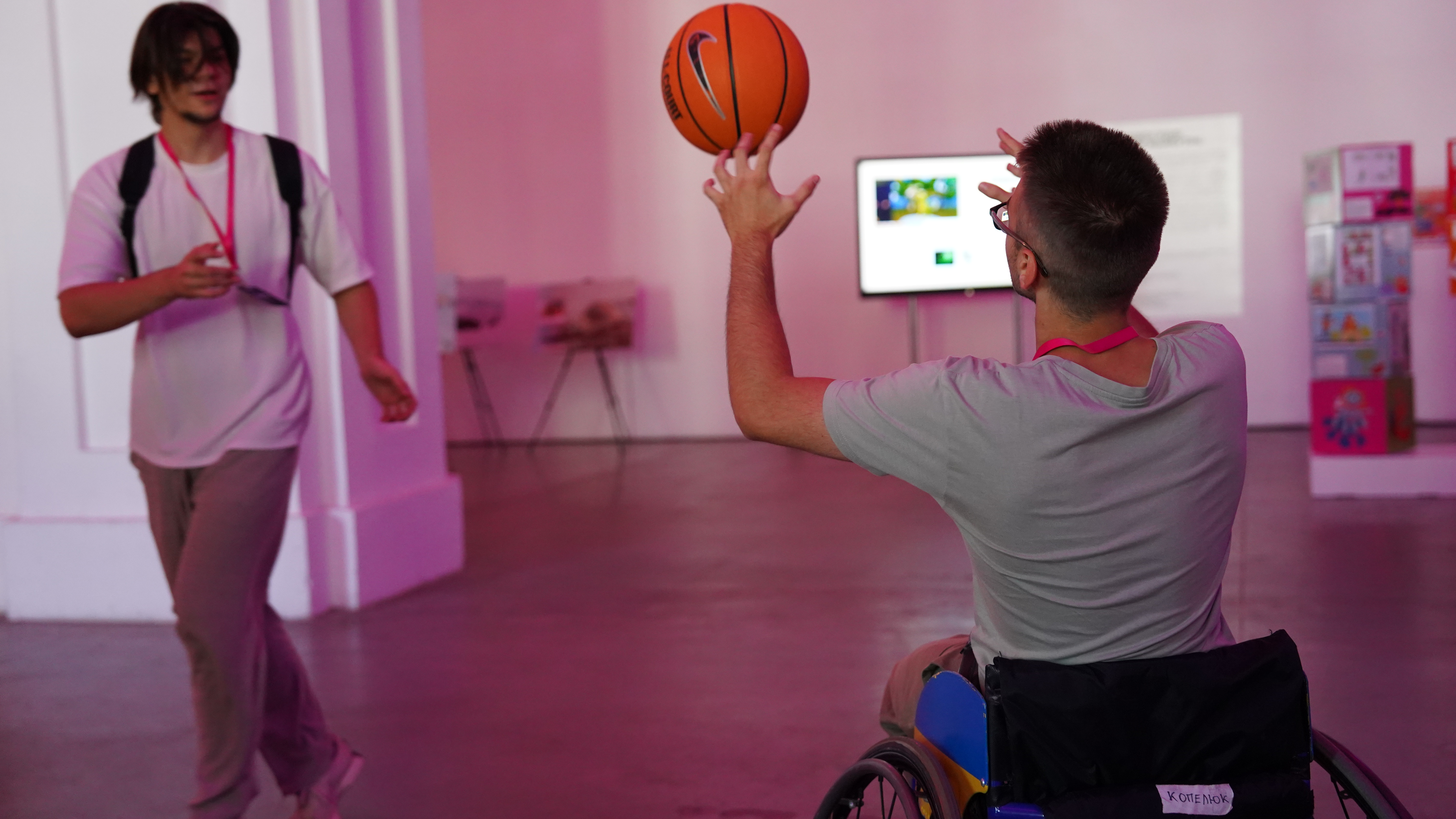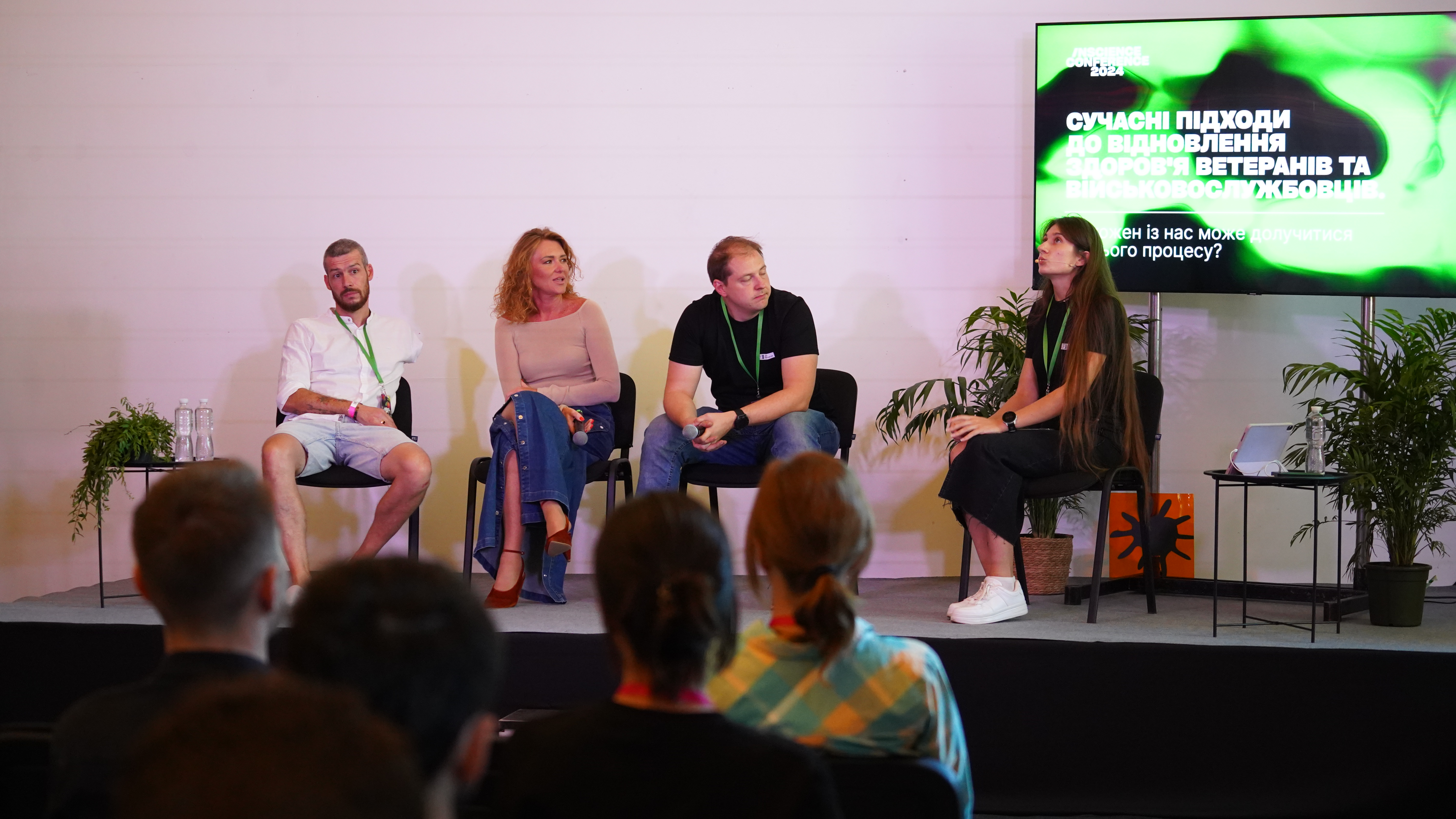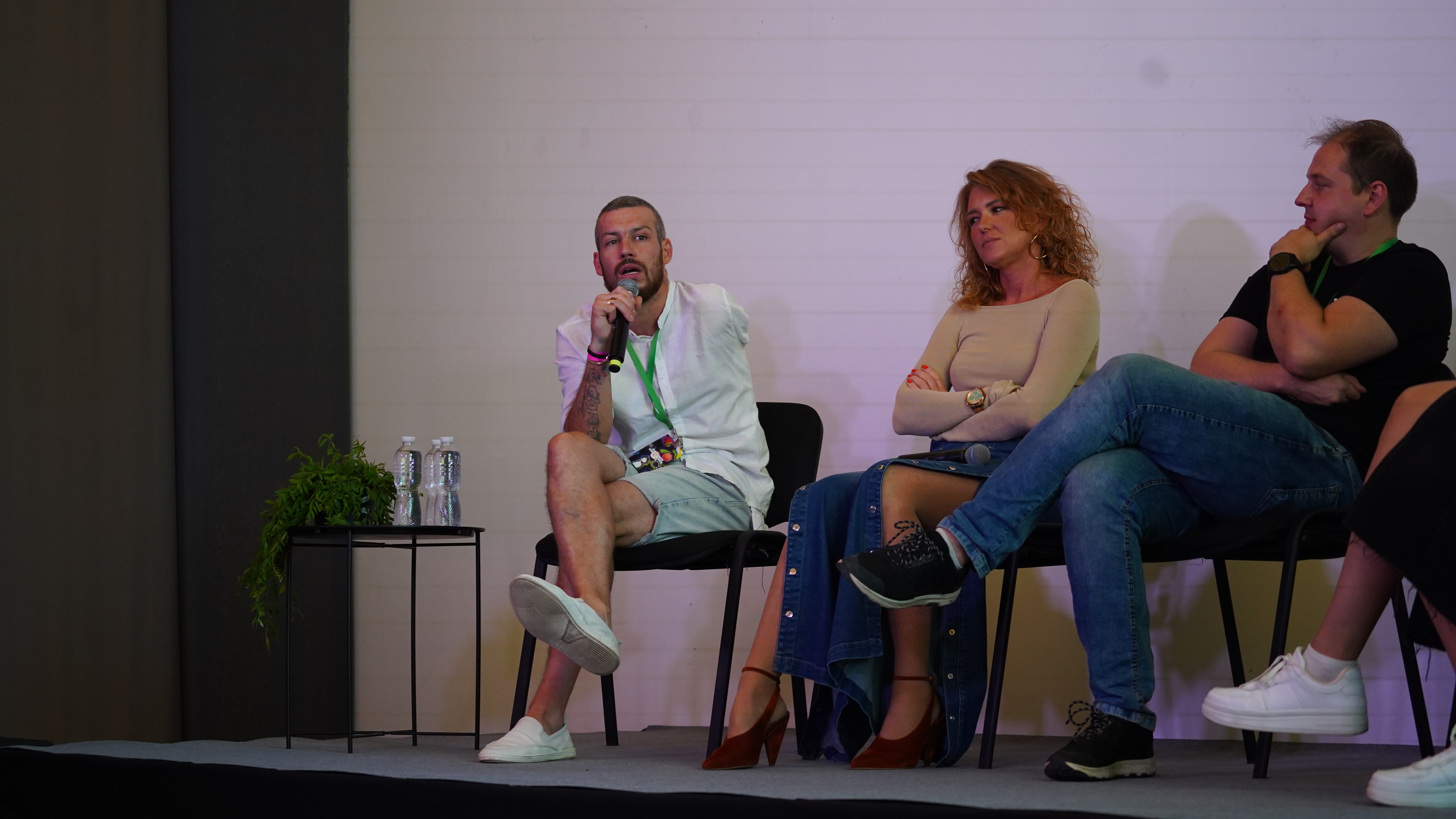The CBA Initiatives Center took part in the largest popular science conference INSCIENCE: recap
INSCIENCE is a non-governmental organization that promotes science and evidence-based medicine and increases their value for society, business and the state through popular science projects.
Department of Veterans Affairs’ team of The CBA Initiatives Center installed the area dedicated to adaptive sports. Guests had an opportunity to ride a handbike, play wheelchair basketball or try their hand in archery. Such experiences bring society closer to understanding the challenges faced by people who have been injured or wounded and are reacquainting themselves with their own bodies and their capabilities.
What is the concept of adaptive sports, and why is it important?
Adaptive sports are recreational or competitive sports for people who have injuries, wounds, or illnesses that affect their physical or psychological condition.
Almost every sport can become adaptive. This requires either certain modifications of equipment or additional materials or special flooring to help people with different abilities to participate in sports activities.
Adaptive sports come in all forms: from wheelchair basketball and teeth archery to skeleton.

Adaptive sports help to reduce stress, improve quality of life, connect with a community of like-minded people, enhance rehabilitation, and rediscover a new oneself.
Together with the interactive zone with adaptive equipment, The CBA Initiatives Center took part in a panel discussion “Modern Approaches to Restoring the Health of Veterans and Military Personnel”.
Taras Kovalyk, Head of the Department of Veterans Affairs of The CBA Initiatives Center, Kseniia Voznitsyna, Chief Doctor of Lisova Poliana Veterans Mental Health and Rehabilitation Center, and Herman Zolotarev, a veteran of the Russian-Ukrainian war and representative of the Superhumans Center, discussed the importance of a multidisciplinary approach to the recovery of veterans and the main challenges faced by specialized organizations.

“The biggest challenge is that many veterans have never played sports before being wounded. We, as a nation, are not very into sports. Therefore, after being wounded, sport becomes a necessity. However, when veterans leave rehabilitation centers and return home, it is difficult to urge them to attend sports events. That's why it's important to create hubs where people can get medical care, rehabilitation and have exercise. Often, when veterans try it, they become enthusiastic and continue to play sports at home,” said Taras Kovalyk.
Kseniia Voznitsyna continued the discussion and supported Taras’ opinion: “Sports and physical activity are critical for veterans' recovery. Exercise stimulates the brain's neuroplasticity and helps grow new neural connections, which directly affects psychological health.”

“Sport has played a huge role in my life, especially after my injury. At first, I was in a state of confusion and depression, not knowing what would happen next. But through adaptive sports I found a new meaning of life. It started with table tennis, when a veteran who played in a wheelchair offered me to play a game. I lost, but in the process I realized that sport could become a part of my life,” said Herman Zolotarev.
Department of Veterans Affairs’ team is creating an ecosystem of veterans’ rehabilitation through adaptive sports and promoting it in Ukraine. Read more about it here.
Поділитись
